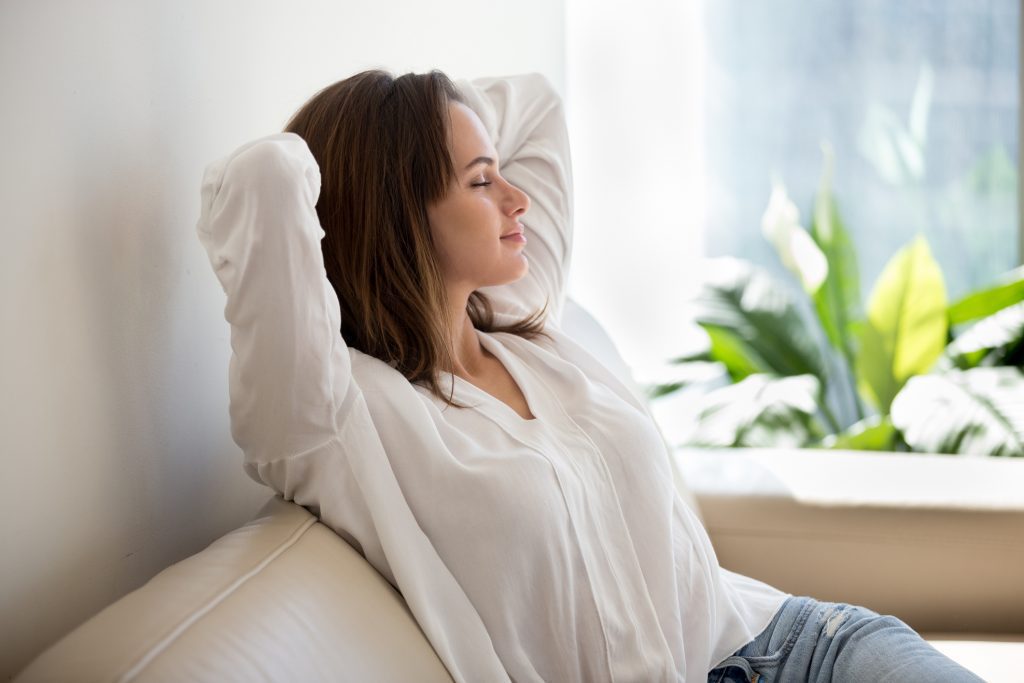Indoor air quality is crucial for homeowners, especially as many Americans have been spending more time at home. Installing proper heating, ventilating and air conditioner (HVAC) filters can make a big difference between stuffy air that carries pollutants and a clean, healthy environment. We know what we’d choose.
The first step to better air quality is understanding the difference in air filters used in your home. Let’s take a look!

Options for Air Filters
There are several types of air filters for your HVAC system, all with different benefits. Some people prefer high-efficiency particulate air (HEPA) filters to eliminate allergens and other pollutants, and others want a basic one that just gets the job done.
Generally, high-efficiency types are a cost-effective solution for most homes, but there are factors to consider when choosing a filter. Do you have pets? Is mold or mildew an issue in the home?
Different types of A/C filters include:
- UV light filters
- HEPA filters
- Washable filters Pleated filters
Everything from fabric to fiberglass are components of air filters; they are rated using the Minimum Efficiency Reporting Value (MERV) to illustrate how well the filter traps pollutants.
Which Filter Should I Choose?
Choosing the right AC filter depends on what you are purifying from the air and if family members with severe allergies or respiratory issues live in the home.
UV Filters
UV filters use short-wave ultraviolet light to kill bacteria and viruses in the air. When air passes through the air conditioning unit, the UV lamps disinfect it with germicidal radiation. UV filters are excellent for eliminating hazardous microorganisms, including bacteria, viruses, mold spores, etc.
UV filters are great for eradicating bacteria and viruses, but their efficiency deteriorates when screening other pollutants such as dust or pet dander. This is why UV products often are used with HEPA or other filters.
The UV light from the filters is invisible to humans, and the lightbulbs typically have to be replaced annually, depending on your HVAC system.
A UV air purifier from Best Home Services will destroy mildew, mold spores, and bacteria as these contaminants travel through your ductwork!
HEPA Filters
High-efficiency particulate air (HEPA) filters remove 99.97 percent of airborne allergens and pollutants. With a MERV rating of 16, HEPA filters provide the highest protection of any other air filter in your home; they can be used with a UV filter for the cleanest air possible.
Those who live with allergies or other respiratory issues may benefit the most from HEPA filters because they remove the smallest microns or airborne particles from the air. HEPA filters will need to be adjusted by a contractor to fit your specific system.
The best part? HEPA filters only need to be changed every few years!
Washable Filters
If you like to shop eco-friendly, this may be the choice for you. Being able to repeatedly wash and reuse a filter instead of buying a new one every month is a great benefit.
After washing, ensure that the filter is completely dry before putting it back in place. The slightest bit of moisture could lead to development of mold or mildew that will then circulate throughout your system.
These filters have a low MERV rating, but they are a great option for someone who doesn’t need a specialty filter.
Pleated Filters
Pleated filters are made from polyester fabrics or cotton and have a MERV rating between 5 and 13. They effectively filter dust and other airborne pollutants, but they can impede airflow depending on the number of pleats they have.
The pleats increase the filter’s surface area, and they thoroughly clean the air. They can trap even the most difficult pollutants such as mold spores and pet dander. You can purchase reusable or disposable pleated filters, and they often suppress the noise of the HVAC fan.
The downside is that they require your HVAC system to work harder to pull air through the unit, which could result in a loss of efficiency.

How Often Should I Change My Air Filter?
Depending on the type of filter used, you generally can expect to change your HVAC filters every 30 to 90 days.
Cheaper fiberglass filters require replacement every month, and pleated air filters that are made from higher-quality materials can last three to six months depending on the use and whether you have pets.
During the sweltering months in Florida, your filter may need to be replaced every few weeks rather than monthly because of extended use and higher humidity.
No matter the season, the air-quality technicians at Best Home Services will ensure your indoor air is safe and your family is comfortable. Give us a call!
Enhance Indoor Air Quality
Air quality is of utmost importance in the home, and At Best Home Services, we provide excellent indoor air quality services throughout the Southwest Florida area. We can perform an air-quality assessment of your home and install air purifiers, filtration, and humidification systems.
Ready to breathe easier? Call Best Home Services today!

